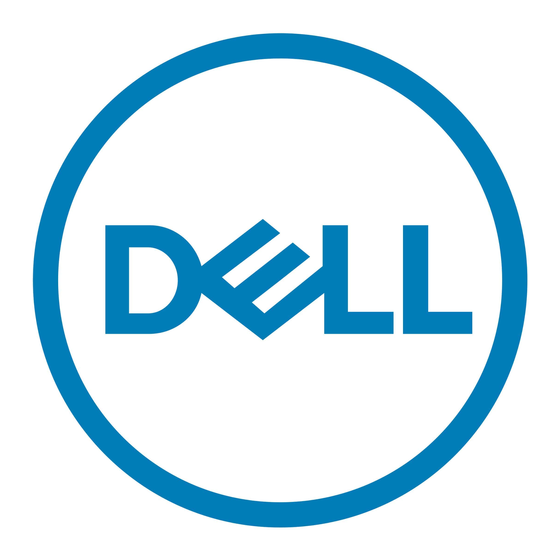Dell Precision R5400 Podręcznik - Strona 7
Przeglądaj online lub pobierz pdf Podręcznik dla Serwer Dell Precision R5400. Dell Precision R5400 13 stron. Technical guide
Również dla Dell Precision R5400: Specyfikacje (2 strony), Broszura (2 strony), Podręcznik (25 strony), Podręcznik techniczny (36 strony)

Network Capacity – is the capacity of the network to forward packets, described in bits per second. Networks
may have any number of capacity constrictions, including link-rates between switches, or internal switching
limits of the switches themselves. This term is used in this document to describe the ability of the network to
forward network data relative to the link planning bandwidth.
Device Bandwidth Limit – is a configuration parameter in PCoIP hosts and portals that is a hard upper
bandwidth limit between the PCoIP hosts and portal pairs for downstream (host to portal) and upstream (portal
to host) traffic. This feature is available for advanced IT configurations, and it is recommended that the default
setting (disabled) be used in most environments. Disabling the Device Bandwidth Limit allows the PCoIP host
and portal pair to make optimal use of the available network resources.
While the Device Bandwidth Limit is normally disabled, an IT administrator may use the setting to get a feel for
the relationship between used network bandwidth and user experience. Through experimentation with content
typically seen by the user, the IT person may find that the network bandwidths described in this document are
too conservative and adjust the values accordingly.
Device Bandwidth Target - is a configuration parameter in the PCoIP host and portal that defines the
bandwidth that each attempts to maintain when the network is congested. This setting allows IT administrators
to set a soft bandwidth floor for all users to improve the fair distribution of bandwidth when the network is
congested. When the network is not undergoing congestion, the PCoIP devices will adapt to use available
bandwidth as required, up to the Device Bandwidth Limit. The Device Bandwidth Target should be set to the
Planning Bandwidth to ensure that each user maintains a minimal acceptable experience level in a constrained
network scenario.
Peak Bandwidth - is the maximum bandwidth for a given user PCoIP host and portal pair. Since PCoIP only
transmits changes in the user's display, large screen change results in a burst of network traffic. The peak is
defined by the display resolution and the number of pixels changing at a given time. The Device Bandwidth
Limit may be set to impose a limit on the peak bandwidth.
Average Bandwidth – is the average bandwidth for a given user PCoIP host and portal pair over a long period
of time. The average bandwidth is very application and user dependent but is typically a small fraction of the
peak bandwidth.
Segment the User Base
PCoIP network requirements are highly dependant on the usage scenario, ranging from plain text data entry to
3D CAD. To understand the optimal network size and networking settings, IT administrators need to use their
understanding of the user base. Table 1 shows common user types and associated profiles.
Table 1: Example User Segmentation to Optimize Network Resource Allocation
User Category
Task Worker
Knowledge Worker/
Basic CAD
Performance User/
3D Modeling
Video Editing
Extreme User
TER0806005 Issue 1
User Profile
Primarily text entry into forms.
Uses standard office applications such as word processing, spreadsheets, and
presentation tools, uses web, reads and writes emails, and simple CAD applications etc.
Similar to the Knowledge Worker user profile with the exception of occasional use of
high-end visual applications, 3D modeling and may perform analysis on static images.
Similar to performance user, but requires consistent high-quality multimedia playback.
Discerning users of high-end visual applications such as 3D modeling, video editing or
animation. Typically content has a higher resolution and the user performs technical
analysis by dynamically manipulating images.
7
